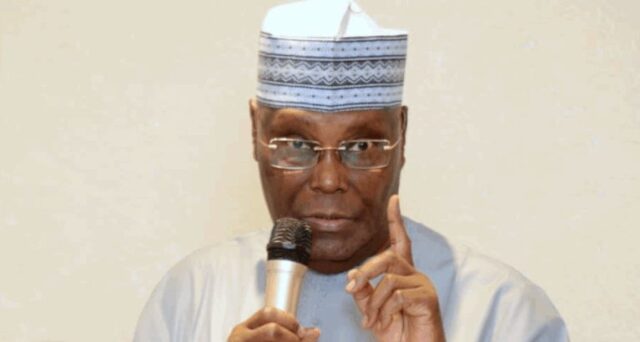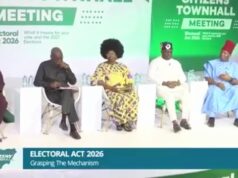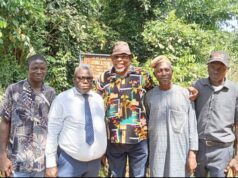Former Vice-President Atiku Abubakar has criticised President Bola Tinubu for what he described as the “reckless and morally indefensible” use of presidential pardon.
In a statement on Sunday, Abubakar said the latest exercise of clemency by Tinubu “undermines justice and emboldens criminality,” arguing that it betrays the spirit of the constitutional power it is meant to represent.
“The recent announcement of a presidential pardon by President Bola Ahmed Tinubu has, as expected, provoked outrage across the nation,” Abubakar said.
“Ordinarily, the power of presidential pardon is a solemn prerogative, a moral and constitutional instrument designed to temper justice with mercy and to underscore the humanity of the state.
“When properly exercised, it elevates justice and strengthens public faith in governance. Regrettably, the latest pardon issued by the Tinubu administration has done the very opposite.”
He said granting clemency to individuals convicted of serious crimes such as drug trafficking, kidnapping, murder, and corruption “not only diminishes the sanctity of justice but also sends a dangerous signal to the public and the international community about the values this government upholds”.
“At a time when Nigeria continues to reel under the weight of insecurity, moral decay, and a surge in drug-related offences, it is both shocking and indefensible that the presidency would prioritise clemency for those whose actions have directly undermined national stability and social order,” he added.
The former vice-president said it is “particularly worrisome” that nearly a third of those pardoned were convicted for drug-related offences.
“Particularly worrisome is the revelation that 29.2 percent of those pardoned were convicted for drug-related crimes at a time when our youth are being destroyed by narcotics, and our nation is still struggling to cleanse its image from the global stain of drug offences,” he said.
“Even more disturbing is the moral irony that this act of clemency is coming from a president whose own past remains clouded by unresolved and unexplained issues relating to the forfeiture of thousands of dollars to the United States government over drug-related investigations.
“It is, therefore, no surprise that this administration continues to demonstrate a worrying tolerance for individuals associated with criminal enterprise.”
According to him, a presidential pardon is meant to symbolise “restitution and moral reform,” but Tinubu’s action “has become a mockery of the criminal justice system, an affront to victims, a demoralisation of law enforcement, and a grave injury to the conscience of the nation.”
“Clemency must never be confused with complicity,” Atiku said, adding that “when a government begins to absolve offenders of the very crimes it claims to be fighting, it erodes the moral authority of leadership and emboldens lawlessness,” the former vice-president.
“Nigeria deserves a leadership that upholds justice, not one that trivialises it.”
Recently, 175 persons received a presidential pardon following the approval of the national council of state.
Among the 175 beneficiaries are Herbert Macaulay, one of Nigeria’s foremost nationalists; Farouk Lawan, a former member of the house of representatives; Mamman Vatsa, a major general and poet executed in 1986 over alleged treason; and Maryam Sanda, who was sentenced to death for killing her husband in 2017.
Drug offenders, illegal miners, white-collar convicts, and foreigners are also among the recipients of the presidential pardon.
In a statement on Saturday, Bayo Onanuga, special adviser to the president on information and strategy, said Tinubu granted clemency to most of the convicts based on reports that they had shown remorse and good conduct.
Discover more from TheTimes Nigeria
Subscribe to get the latest posts sent to your email.









